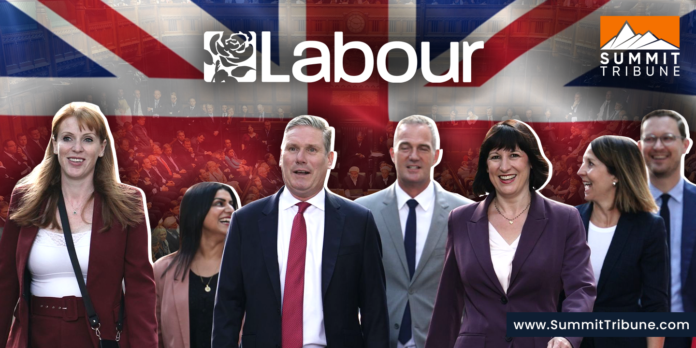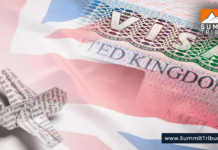
British lawmakers squeezed into parliament Tuesday with Labour ministers sitting on the government’s side of the chamber for the first time in 14 years after U.K.’s election brought a Labour Party to power.
New Elected Prime Minister Keir Starmer addressed the house for the first time as Britain’s leader, vowing to “put an end to a politics that has too often seemed self-serving and self-obsessed.”
Also Read: Labour Party’s Keir Starmer officially appointed as UK’s Prime minister
“We all have a duty to show that politics can be a force for good,” he added.
He also noted the new parliament was “the most diverse parliament by race and gender this country has ever seen.”
According to the House of Commons Library, a record 263 or 40 percent of the 650 MPs are women, up from 220 in 2019, while 90 are from minority ethnic backgrounds, an increase from 66 five years ago.
Rishi Sunak — Conservative prime minister until last week in his speech as leader of the opposition send best wishes for Starmer on his victory.
He described being an MP as the “greatest honor, privilege and responsibility,” in a congenial session that contrasted sharply with the usual arguing and shouting seen in the chamber.
The session started by re-electing Lindsay Hoyle as speaker of the house.
After the addresses by Starmer, Sunak, and other party leaders, parliament was to begin the lengthy process of swearing in all 650 MPs. Some 335 of them are new to parliament.
Labour won 411 seats, securing a majority of more than 170 as it returned to power for the first time since Gordon Brown was prime minister in 2010.
The Tories suffered their worst-ever electoral defeat, succumbing to just 121 MPs.
Sunak is due to stay in charge of the party until the Conservatives work out the timetable for his successor to be chosen.
The new parliamentary session will officially begin after Starmer’s government puts forward its priorities for the term in the King’s speech on Wednesday 17 July.








